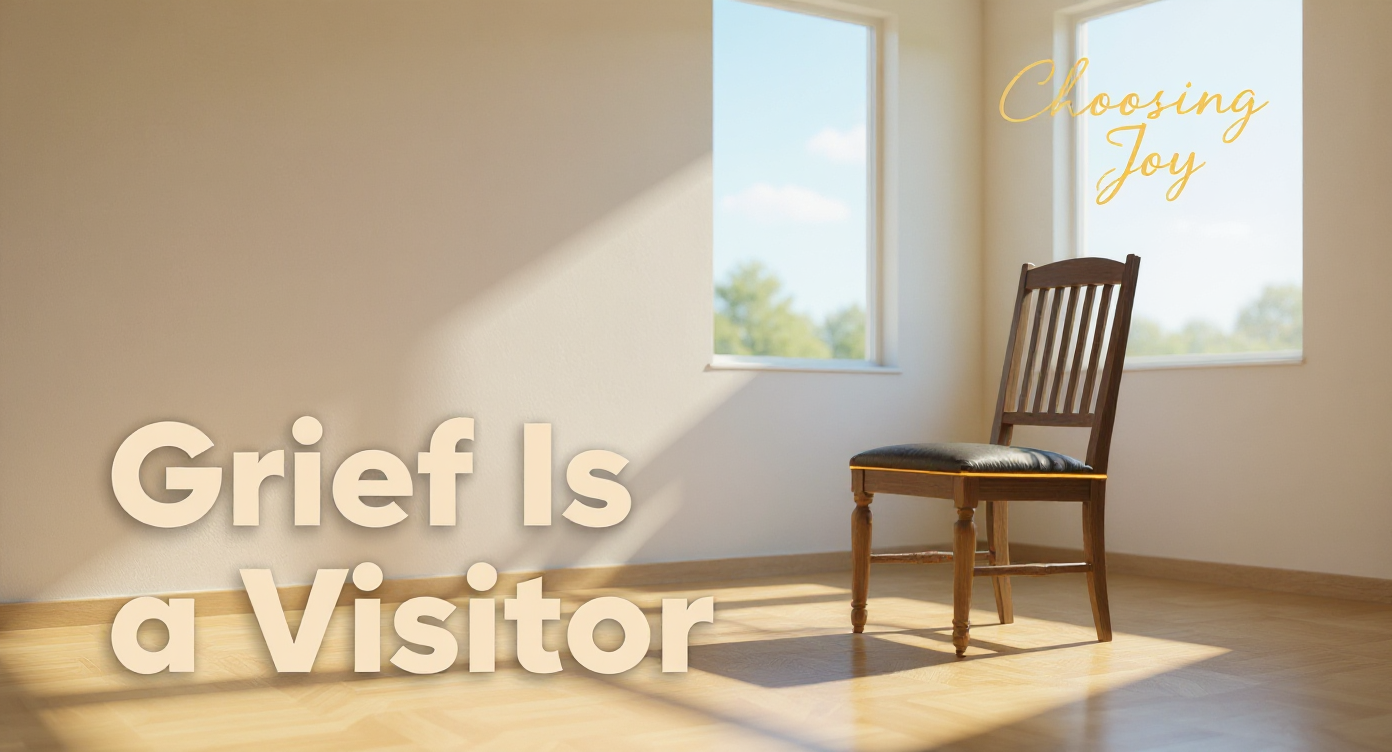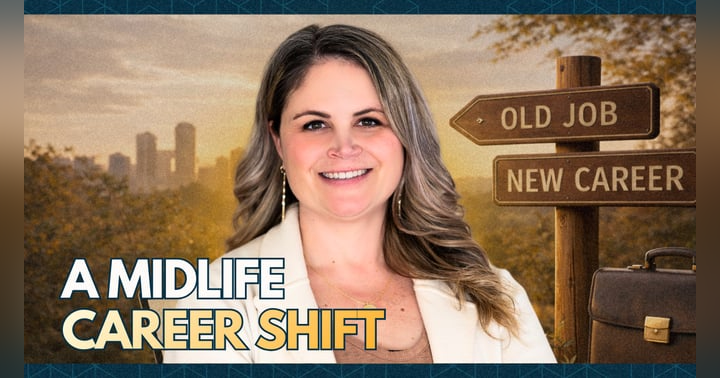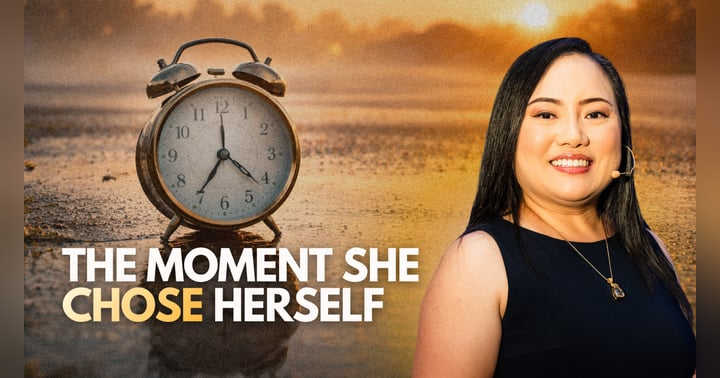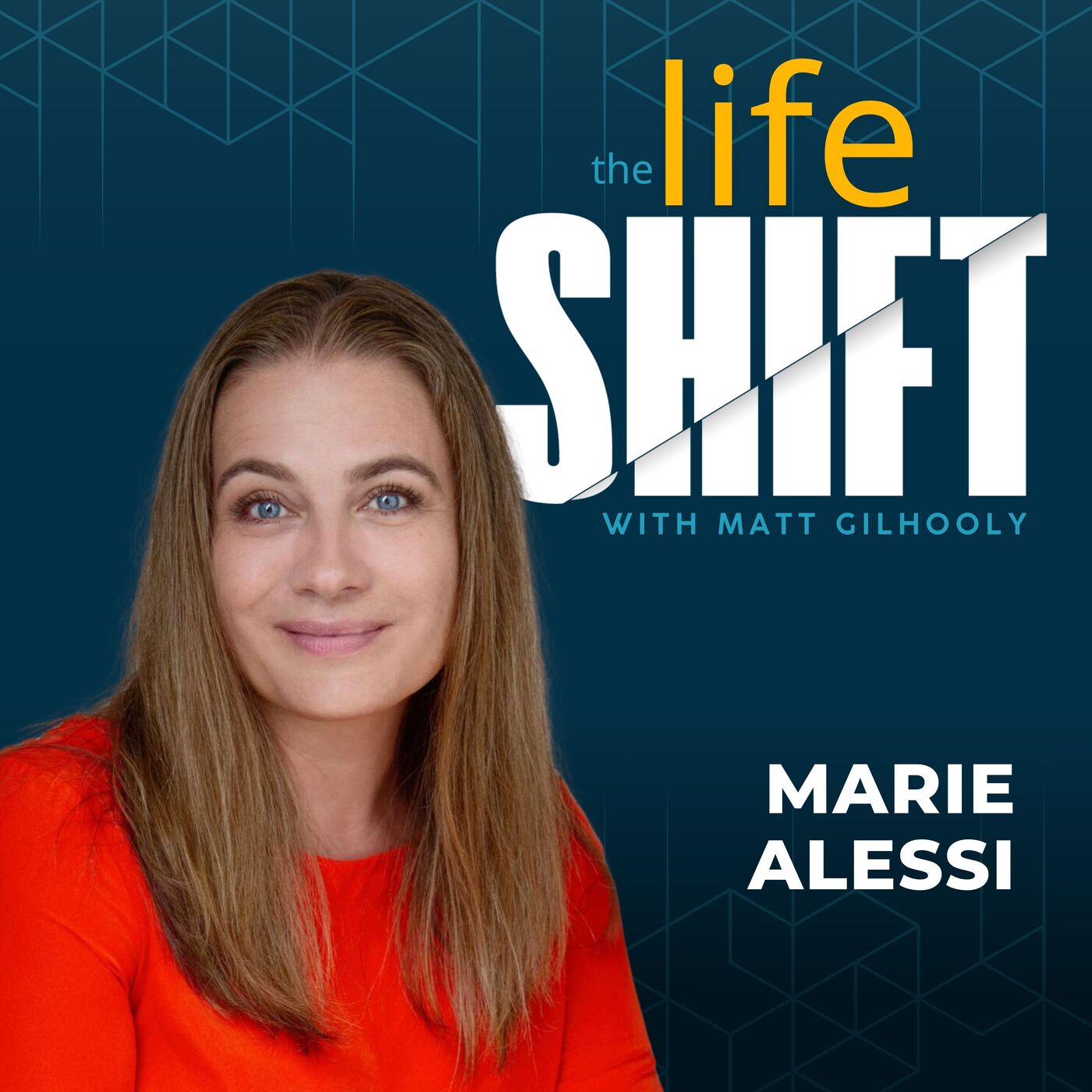How Marie Alessi Reclaimed Joy After Losing Her Husband

Redefining Grief and Rewriting the Story
When Marie Alessi’s husband, Rob, died suddenly from a brain aneurysm, everything changed in an instant. He was away on a business trip. She had just kissed him goodbye at the train station, their kids riding scooters by their side. Less than 24 hours later, a coroner called to tell her Rob had passed in his hotel room.
It’s the kind of moment that pulls the ground out from under you. But what struck me most in our conversation was not just the loss itself. It was the quiet, determined promise Marie made right after.
She told me she remembered Rob's voice in her head, reminding her of a conversation they had years earlier. A “what if” talk. The kind you have when someone you love gets stuck in traffic or brushes up against danger. In that moment, he had said, “If anything ever happens to me, I want you and the boys to live the happiest life possible.”
And so that’s what she set out to do.
The Power of a Soul-Level Promise
Marie didn’t sugarcoat anything in our conversation. She talked about the loneliness. The unexpected grief wave that hit years after Rob’s death. The cat going missing on the anniversary and how that made everything feel heavier.
But woven through her story was something I didn’t expect: joy.
Not in a forced or overly positive way. Joy that was chosen. Joy that was earned.
Marie describes grief as a visitor, not a permanent resident. In the early days, it stayed overnight. It curled up beside her in the bathtub. It lingered on the pillows where Rob used to sleep. But eventually, she asked it to go.
“Joy lives here now,” she told me.
“Grief can visit when she wants, but she doesn’t get to move in again.”
That line stuck with me. Because I think so many of us worry that if we let joy back in, it means we’ve let go of the person we lost. Marie sees it differently. Her joy is part of Rob’s legacy.
Parenting Through Loss and Leading With Love
Marie’s sons were 10 and 8 when Rob died. That hit me hard because I was around that age when my mom passed. And I know what it feels like to be that kid, to sit in that loss without tools or language or anyone really guiding you through it.
Marie promised her kids she would show up even if she didn’t know how. Even if it felt impossible.
There’s this moment in our conversation where she tells me how one of her sons, just minutes after hearing about Rob’s death, asked her, “Who’s going to look after us now?”
She answered without hesitation: “I will.”
I think about that moment a lot. About how hard it must have been to say those words while her heart was breaking. And how much courage it takes to mean them.
Marie isn’t pretending this path was easy. But she’s honest about what helped. Spiritual signs. Self-care. Community. And the decision to stop chasing perfection and start choosing presence.
You Are Allowed to Feel Good Again
One of the biggest takeaways from Marie’s story is that it’s okay to feel good again.
That might sound obvious, but for many people who are grieving, joy feels off-limits. Like it disrespects the pain. Like it erases the memory.
Marie challenges that. She believes we can live beautiful lives because of what we’ve lost, not in spite of it.
It doesn’t mean the sadness disappears. It doesn’t mean the memories fade. But it does mean you get to build something new. Something intentional.
We ended the conversation reflecting on what her sons have learned through this, how they’ve seen her fall apart and still keep going. How they’ve witnessed that joy and grief can share a room. And how that might shape how they show up in their own lives someday.
If you’re navigating grief or supporting someone who is, Marie’s story might change the way you think about what’s possible. It’s not about replacing the loss. It’s about making space for what still matters.
You can hear our full conversation at www.thelifeshiftpodcast.com.














